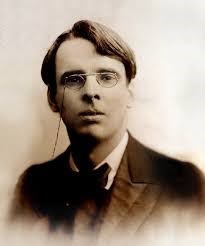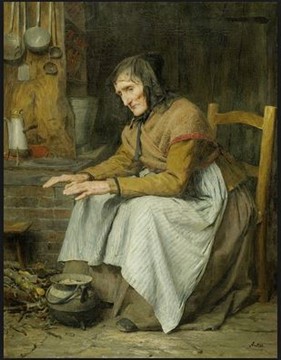2nd PUC English Question and Answer – When You Are Old
Looking for 2nd PUC English textbook answers? You can download Chapter 6: When You Are Old Questions and Answers PDF, Notes, and Summary here. 2nd PUC English solutions follow the Karnataka State Board Syllabus, making it easier for students to revise and score higher in exams.
Karnataka 2nd PUC English Textbook Answers—Reflections Chapter 6
When You Are Old Questions and Answers, Notes, and Summary
2nd PUC English Chapter 6
When You Are Old
Scroll Down to Download When You Are Old PDF
Comprehension I.When You Are Old
Question 1.
The poet is addressing:
(a) a young woman the poet has loved
(b) an old woman that he has met now
(c) the woman that he has admired in his life
Answer
a) a young woman the poet has loved
Question 2.
In line two, the word ‘book’ refers to
(a) memories
(b) book of poems
(c) an album
Answer
(b) book of poems
Question 3.
The words ‘glad grace’ suggest:
(a) her physical beauty
(b) her inner beauty
(c) her goodness
Answer
(c) her goodness
Question 4.
‘Pilgrim soul’ refers to the soul:
(a) which is immortal
(b) that has gone on a pilgrimage
(c) which is in quest of true love
Answer
(c) which is in quest of true love
Question 5.
What does the phrase ‘your changing face’ suggest?
Answer
The phrase “changing face” suggests the poet’s deep and genuine love for his lover. While others admired only her outward beauty, the poet loved her for who she truly was, beyond just her appearance.
Question 6.
‘Love fled’ connotes:
(a) the death of the man who loved her
(b) the fleeing of her lover to the mountains
(c) the loss endured by her
Answer
(a) the death of the man who loved her
Comprehension II.When You Are Old
Question 1.
How is the ‘one-man’ different from the many others who loved the lady?
Answer:
The “one-man” refers to the poet, who stands apart from the others who loved the woman only for her external beauty. Unlike them, he loved her for her inner beauty and her soul, not just her physical appearance. He demonstrated the depth of his true love by remaining devoted to her for a long time.
Question 2.
Does the poem highlight the fleeting nature of beauty compared to the permanence of love?
Answer:
Yes, the poem emphasises beauty’s fleeting nature in contrast to true love’s enduring nature. The poet describes the lady’s youthful beauty and later portrays her with grey hair and tired eyes as she ages. Despite these changes, the poet’s love remains unwavering, showing that while physical beauty fades, true love is everlasting.
Comprehension III. When You Are Old
Question 1.
Comment on the poet’s use of the time frame.
Answer:
The poet skillfully weaves together the past, present, and future in his reflection on love and memory. He envisions a time after his death, imagining his beloved as an older woman with grey hair and tired eyes, sitting by the fireplace. In this future moment, he asks her to read his book of poems, which he wrote in the past, and reflect on her youth.
He contrasts how many admired her physical beauty, while he alone loved her for her soul. Now, in the present, she realizes that her youthful beauty has faded, her true love has vanished, and her lover is gone, leaving her with a sense of sadness and regret.
Question 2.
‘When You Are Old’ is a poem of contrasts. What contrasts do you find in the poem? What purpose do they serve?
Answer:
The poem highlights several contrasts, such as the difference between physical beauty and inner beauty, true love and mere attraction, and happiness and sadness. These contrasts illustrate that while physical beauty is fleeting, true love endures.
In her youth, the lady likely felt happiness due to her beauty, but in old age, she experiences sadness as she realizes she never fully embraced the poet’s true love. By the time she understands this, the poet has already passed away, deepening her regret.
When You Are Old Additional Questions and Answers
Question 1.
What is the figure of speech in the phrase “Love fled”?
(a) simile
(b) metaphor
(c) personification
Answer:
(c) personification
Question 2.
“But one man loved the pilgrim soul in you.” Whom does the phrase “one-man” refer to?
(a) poet/speaker
(b) artist
(c) musician
Answer:
(a) poet/speaker
Question 3.
Why does the lady become sad at the end?
Answer:
The lady becomes sad because she failed to recognize and accept true love when she had the chance. By the time she realized its value, it had already vanished, leaving her with regret and sorrow.
When You Are Old Summary
The poem “When You Are Old” by W.B. Yeats is a poignant love poem that envisions the poet’s beloved in her later years. The poet imagines her with grey hair and tired eyes, sitting by the fire, and asks her to take his book of poems and read. As she reads, she reflects on her youth and how many admired her for her external beauty. The poet gently reminds her that he is the only one who truly loves her for her inner beauty and soul.
The poem emphasizes that the poet’s love was unwavering, even as she grew older and faced challenges. He would have loved her deeply regardless of time or circumstances. In the final lines, Yeats personifies love, capturing its fleeting nature:
“How love fled
And paced upon the mountains overhead.”
At the end, the beloved feels sadness and regret for having lost her youth, beauty, and, most of all, the poet’s true love. She realizes her mistake in not accepting his genuine affection when she had the chance.
In this way, Yeats masterfully intertwines the past, present, and future to deliver a powerful message to the youth—to recognize and embrace true love at the right time. The poem stands as an “icon of love” for those who cherish true affection, offering a lesson for the young and a path of reflection for those who have lost their way.


